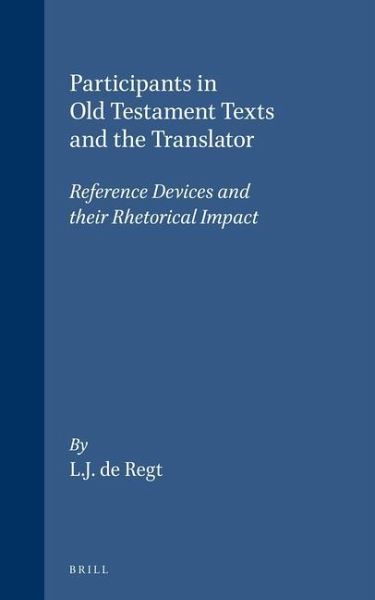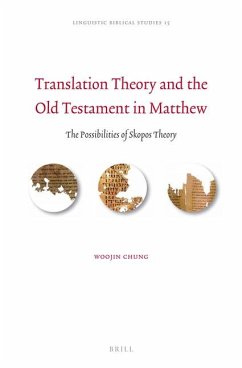Nicht lieferbar

Participants in Old Testament Texts and the Translator
Reference Devices and Their Rhetorical Impact
Versandkostenfrei!
Nicht lieferbar
In Biblical Hebrew texts, individuals and groups are referred to according to specific rules and conventions. How are participants introduced into a text and traced further? When is this done by means of proper names, when by nouns, and when by pronominal elements? In this book, examples from many Biblical passages illustrate the patterns involved. These rules help to solve problems of participant reference in controversial passages. But it is not enough to know who are the participants; one needs to establish why they are referred to the way they are. Main characters in a text are referred to...
In Biblical Hebrew texts, individuals and groups are referred to according to specific rules and conventions. How are participants introduced into a text and traced further? When is this done by means of proper names, when by nouns, and when by pronominal elements? In this book, examples from many Biblical passages illustrate the patterns involved. These rules help to solve problems of participant reference in controversial passages. But it is not enough to know who are the participants; one needs to establish why they are referred to the way they are. Main characters in a text are referred to differently from others. Certain devices of participant reference help to indicate paragraph boundaries. Unusual references to participants aim to be noticed and have rhetorical impact. Proper names may occur where one would have expected a pronominal element (or vice versa). Participants may be mentioned in an unexpected order. Special attention is given to such unusual reference devices and the rhetorical strategies involved: climax, suspense and implicit comment. In a translation, these strategies should still be as clear as they are in the source text. So how have reference devices been handled in ancient and modern translations?





